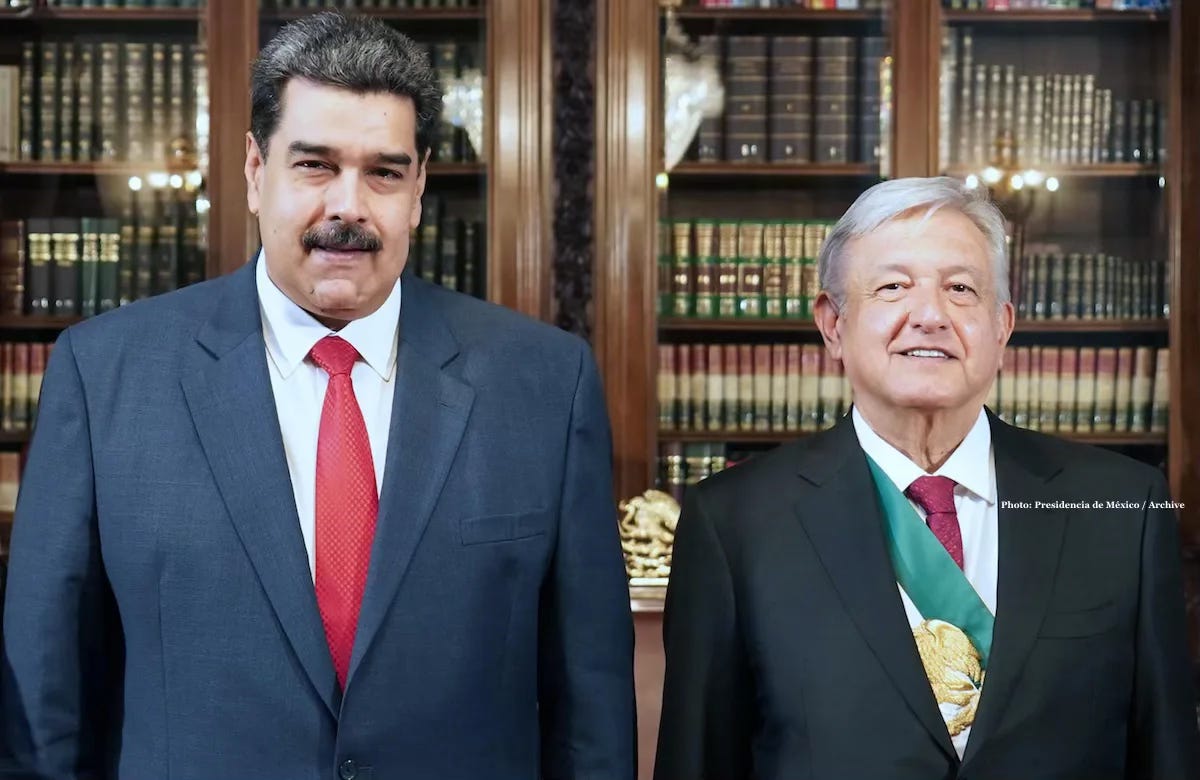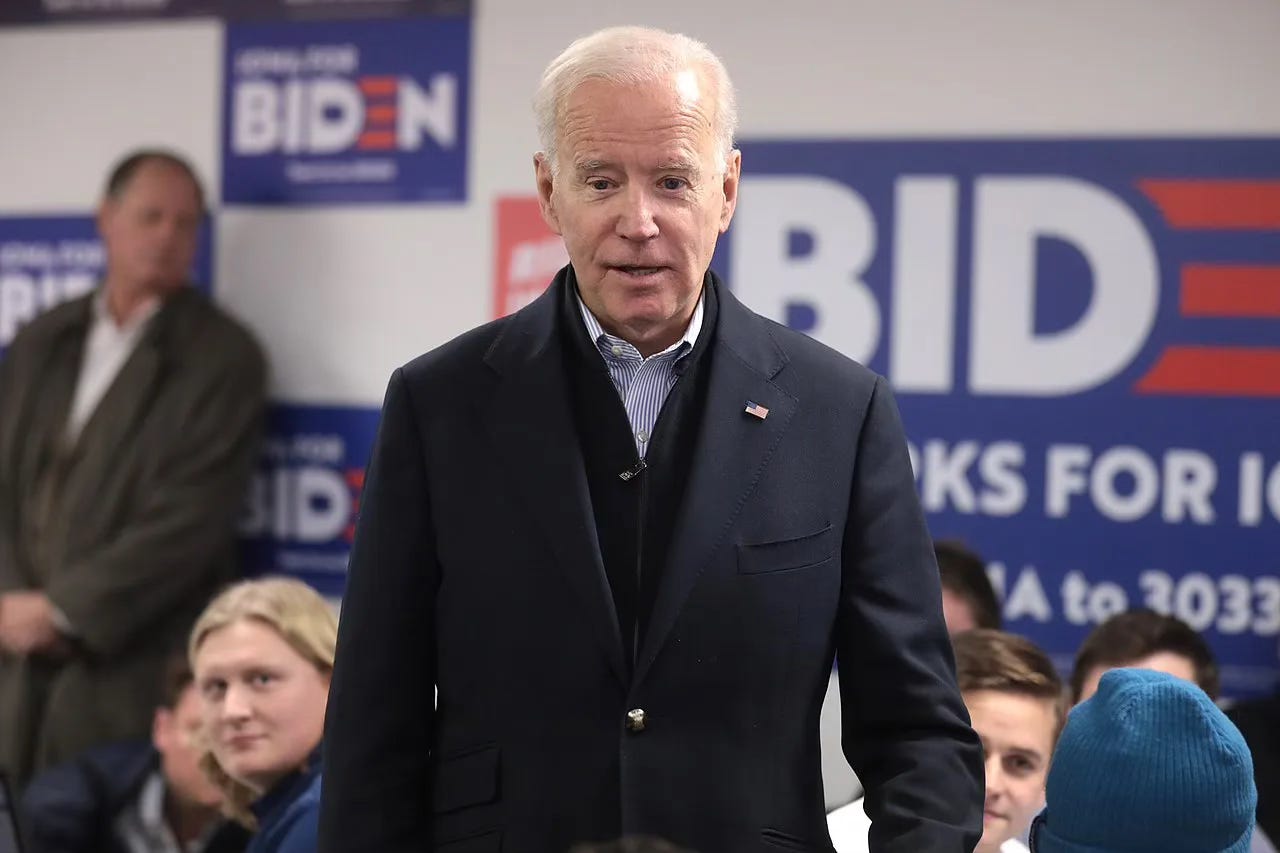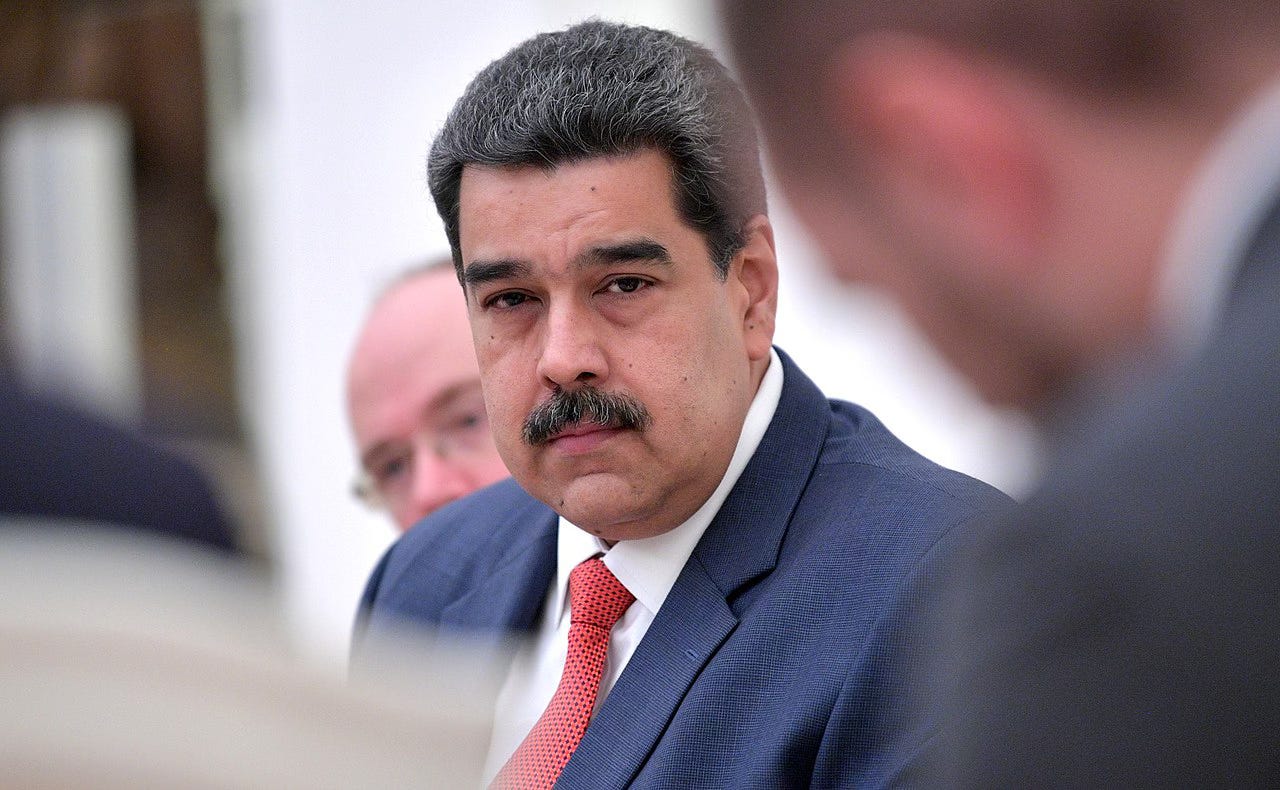How the border crisis is empowering populists and dictators
(Spanish version here).
In recent weeks, media reports of halted U.S. inquiries into allegations that allies of Mexican President Andrés López Obrador (AMLO) took money from drug cartels during his 2006 failed campaign and around the period he was elected in 2018 have strained relations between the U.S. and its southern neighbor.
AMLO attacked the journalists, labeling one from ProPublica a "mercenary" and disclosing personal information about another one from the New York Times, all while implying there was a State Department-led media conspiracy against him. He demanded an apology from Biden, warning that the "leaks" could jeopardize the bilateral talks on migration.
The Biden administration’s reaction has been restrained, focused on clarifying that there is no open U.S. investigation into the Mexican president. Following the initial reports, Biden contacted AMLO to ease tensions. In the White House’s readout of the call, there was no mention of the baseless accusations against the journalists and the State Department. However, Biden did express gratitude to Mexico for taking steps to deter irregular migration.
This incident underscores a broader reality: populist and autocratic leaders like AMLO and Venezuela’s Nicolás Maduro have gained significant leverage from the U.S. border crisis. The United States’ reliance on other countries to manage migration has reduced its capacity to address other foreign policy priorities, such as combating corruption and defending democracy.
It’s immigration, stupid
Immigration is one of Biden’s most pressing challenges. Last December, a new record was set at the border, with around 250,000 illegal crossings, the highest monthly figure to date. This brings the total to over 6 million during Biden’s presidency.
For Biden, this crisis represents not just a challenge but also a barrier to his reelection. Polls reveal that most Americans believe Donald Trump would handle immigration better than him. The GOP is focused on exploiting this, and Biden’s effective management of the economy increases the likelihood that they will continue to do so during the campaign. The recent Senate border deal fell apart because Trump, eager to attack Biden’s immigration record, rallied Republicans to reject it.
The U.S. relies on Mexico to alleviate the migrant crisis. In addition to accepting non-Mexicans expelled after crossing the border, AMLO’s government can limit the number of people traveling north with a policy known as "contention", which involves tightening enforcement at Mexico’s southern border with Guatemala and making it harder for migrants to move across the country.
In late December, amidst the sharp increase in illegal crossings, Biden sent Secretary of State Antony Blinken and other top officials to Mexico to seek assistance with the surge. AMLO agreed to additional enforcement actions and crossings plummeted over the following month.
Mexico’s role in the decrease cannot be overstated, as migration tends to diminish after the holidays. Nevertheless, AMLO’s leverage with the U.S. probably increased after December, which sheds light on his aggressive reaction to the media reports and Biden’s timid response.
It also helps explain why the Mexican opposition accuses the U.S. of turning a blind eye while AMLO weakens or attempts to undermine institutions such as the nation’s electoral agency, the free press and the Supreme Court.
During a recent visit to Washington, the opposition’s presidential candidate, Xóchitl Gálvez, criticized the U.S. for excessively focusing on migration and fentanyl trafficking while ignoring López Obrador’s attacks on democratic institutions.
Gálvez is running against AMLO’s protégé Claudia Sheinbaum, who is expected to win in June’s election. However, she is not competing under fair conditions since the Mexican president is using the state machinery and the federal budget to assist Sheinbaum.
Yet the U.S. has been hesitant to publicly acknowledge these clear signs of democratic backsliding.
The case of Venezuela
Last October, the U.S. lifted its draconian sanctions against Venezuela’s oil and gold sectors following an accord signed in Barbados between dictator Nicolás Maduro and the political opposition. The agreement outlined commitments to hold competitive presidential elections this year, including establishing a process to lift political bans on all candidates.
Maduro also agreed to accept deportation flights from the U.S., marking the end of a four-year suspension.
The Biden Administration had several reasons for this policy shift. First, sanctions failed to facilitate a democratic transition. Initially, they exerted enormous pressure on the regime, but Maduro managed to weather them and reaffirm his grip on power.
Oil was another factor. Although Venezuela's production levels are not high enough to impact gasoline prices, its heavy crudes benefit U.S. Gulf refineries and help mitigate, to some extent, the increasing risks of the global oil markets.
A third reason—and perhaps the most important one— was migration. Nearly eight million people have fled Venezuela, escaping the country’s humanitarian crisis. In 2023, Venezuelan migrants represented the highest number of border encounters after Mexicans, with over 250,000. During the past three years, they have also constituted the largest group released into the U.S. December’s surge in illegal crossings was partly driven by Venezuelans.
With sanction relief, the White House expected to stem the outflow of migrants from Venezuela by boosting the country’s economy while attempting to discourage illegal crossing through the resumption of deportation flights.
Weaponizing migration
Given that Maduro can’t be trusted to honor his promises, the U.S. made the removal of sanctions conditional: they would be reinstated in April if the regime failed to uphold its end of the bargain.
Predictably, Maduro didn’t comply. A few days after the signing of the Barbados agreement, María Corina Machado won the Venezuelan opposition’s primary. While the government allowed the election to proceed, it sabotaged it in numerous ways, censoring media coverage, shutting down the Internet to block the transmission of poll results, and branding the vote as a "mega fraud". Furthermore, the regime-controlled Supreme Court ruled to "suspend" the results.
Since then, Maduro has consistently disregarded the accord. Civil society activists and opposition members have been detained or violently attacked by pro-government groups. Headquarters of political parties and civil associations have been vandalized, and the ban on Machado was recently upheld by the rubber-stamp top court.
Why would the regime behave this way when sanctions are on the line? Maduro rarely makes concessions that might put him at risk, even if that means forgoing additional oil income. Between sanction relief and preserving power, he will always choose the latter.
But the regime also understands that Biden is reluctant to reimpose sanctions because of migration. It is not only aware of the importance the White House places on reducing Venezuelan migration but also knows that Mexico, whom the U.S. relies on to alleviate the border crisis, is advocating for them. AMLO has publicly urged Biden to take various actions to reduce migration, including removing sanctions against Cuba and Venezuela.
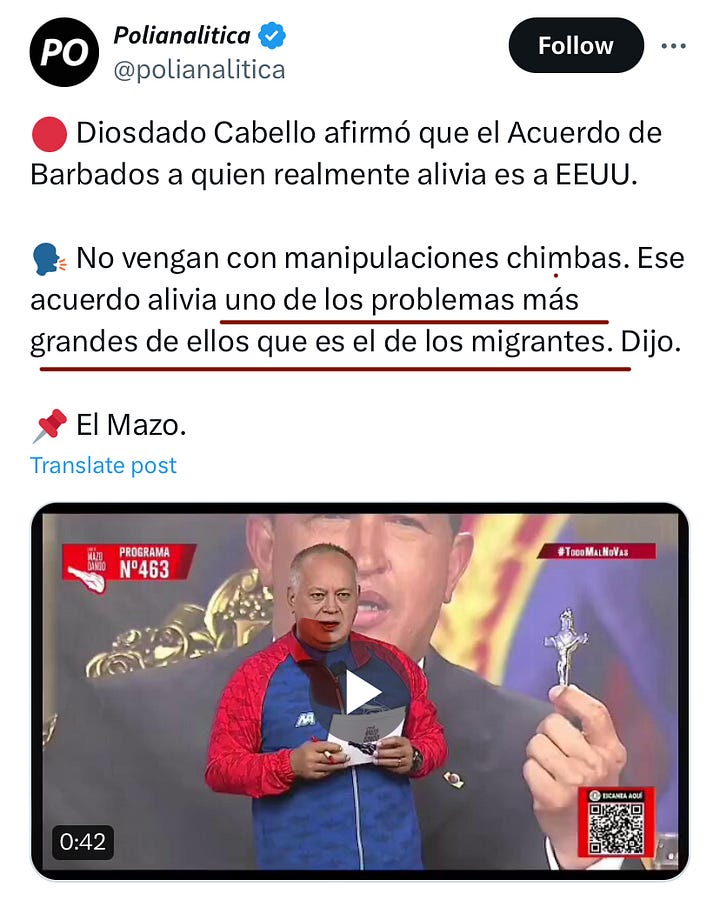
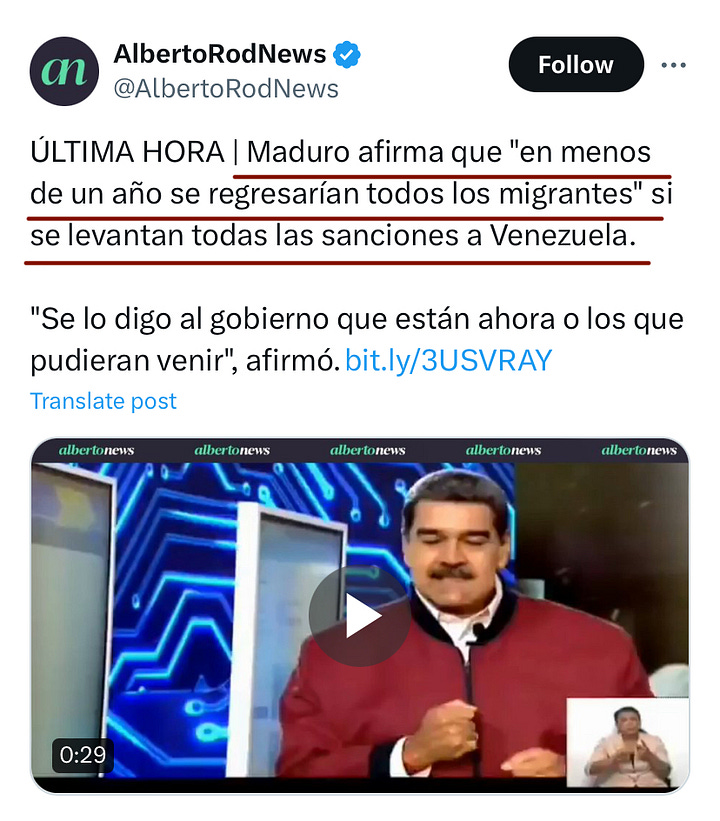
Maduro doesn’t hide his use of migrants as bargaining chips. In January, after the regime ratified Machado’s ban and initiated a new wave of repression, Biden was left with no alternative but to reimpose sanctions on gold and threaten to reinstate more on oil if the opposition candidate was not permitted to run. In response, Maduro stopped accepting deportation flights from the U.S.
In the cases of both Mexico and Venezuela, it’s clear that the border crisis, with its significant electoral implications, has impacted U.S. foreign policy. Migration has constrained the administration’s capacity to defend democracy.
However, the U.S. should recognize that overlooking democratic backsliding might exacerbate the migration crisis in the long run. If Venezuela, Cuba, and Nicaragua were free nations, migration from these places would likely decrease.
While the border crisis affects American foreign policy, the reverse may also hold true.


